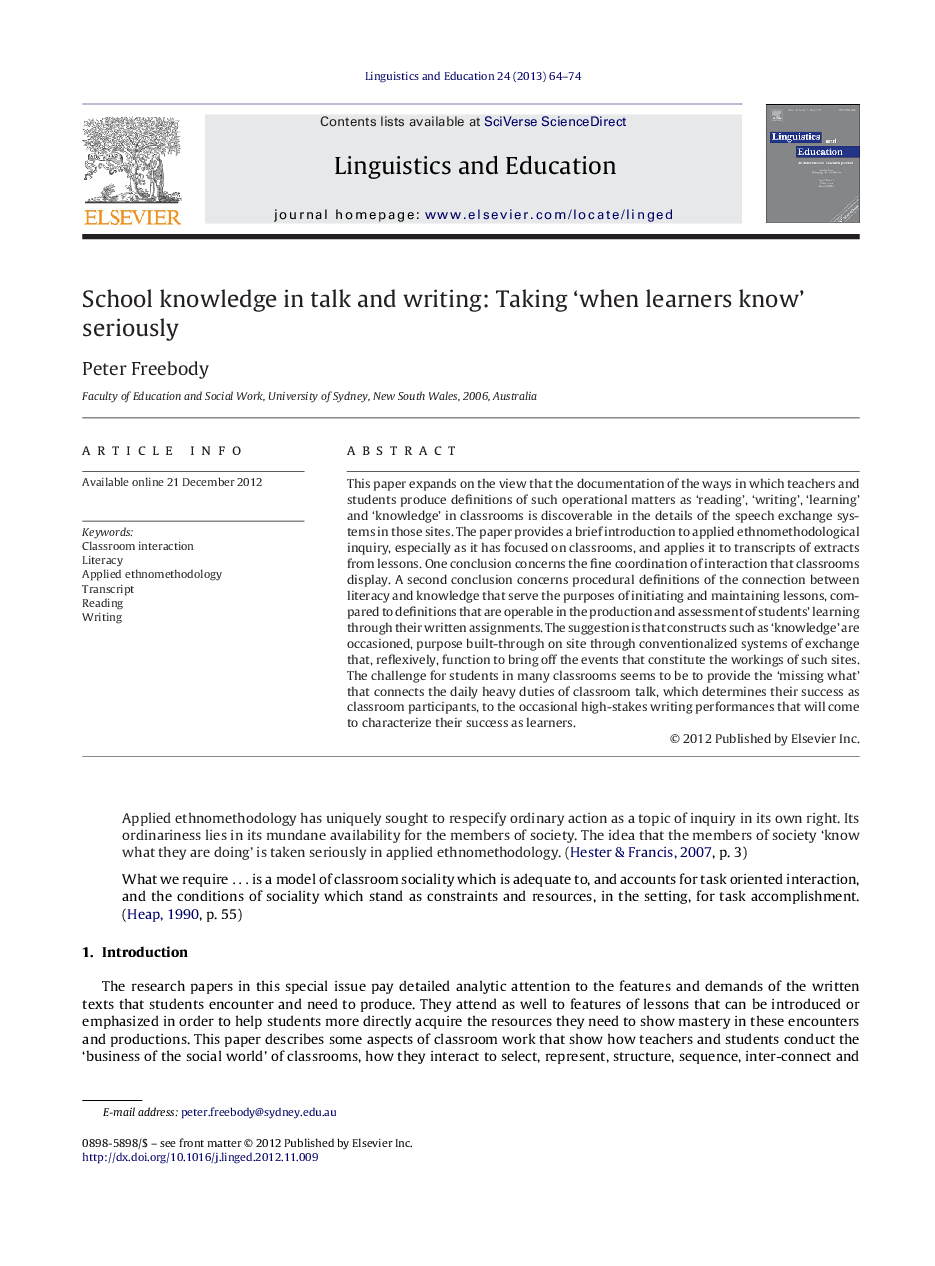| کد مقاله | کد نشریه | سال انتشار | مقاله انگلیسی | نسخه تمام متن |
|---|---|---|---|---|
| 366181 | 621354 | 2013 | 11 صفحه PDF | دانلود رایگان |

This paper expands on the view that the documentation of the ways in which teachers and students produce definitions of such operational matters as ‘reading’, ‘writing’, ‘learning’ and ‘knowledge’ in classrooms is discoverable in the details of the speech exchange systems in those sites. The paper provides a brief introduction to applied ethnomethodological inquiry, especially as it has focused on classrooms, and applies it to transcripts of extracts from lessons. One conclusion concerns the fine coordination of interaction that classrooms display. A second conclusion concerns procedural definitions of the connection between literacy and knowledge that serve the purposes of initiating and maintaining lessons, compared to definitions that are operable in the production and assessment of students’ learning through their written assignments. The suggestion is that constructs such as ‘knowledge’ are occasioned, purpose built-through on site through conventionalized systems of exchange that, reflexively, function to bring off the events that constitute the workings of such sites. The challenge for students in many classrooms seems to be to provide the ‘missing what’ that connects the daily heavy duties of classroom talk, which determines their success as classroom participants, to the occasional high-stakes writing performances that will come to characterize their success as learners.
► An introduction to applied ethnomethodology.
► Analyses of transcripts of classroom interaction.
► The writing–talk interface as a key research site.
Journal: Linguistics and Education - Volume 24, Issue 1, April 2013, Pages 64–74